
54 minute read
I&F - Fantasy/Magic Issue – July/August 2012
August 2012
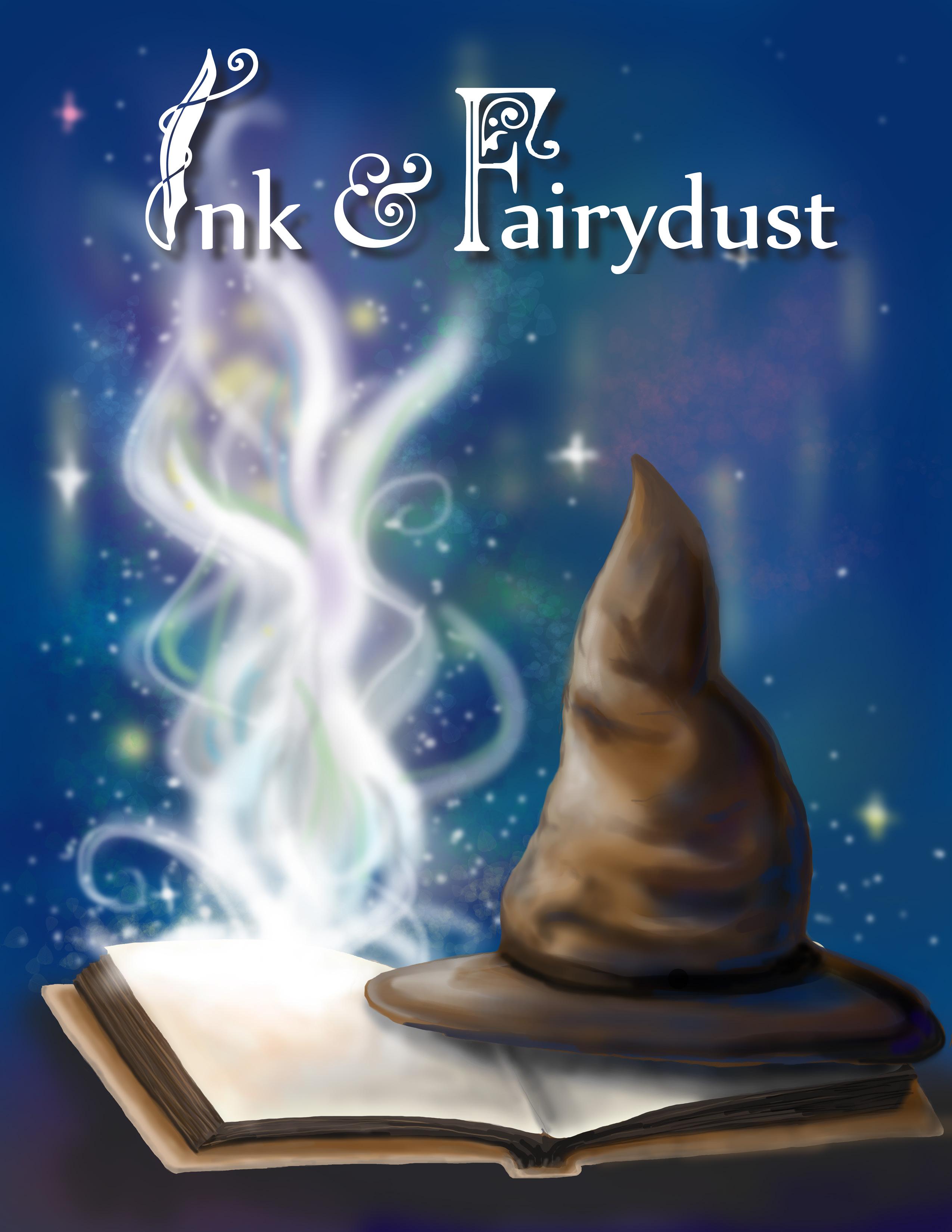
Advertisement
Fantasy Magic
Managing Editor Neri Preslin Assistant Editor Amanda Dominick Graphics Editor Shaylynn Rackers Column Editor Ciara Zaketti Proofreaders Megan Dominick, Marie Jeanette, Ciara Zaketti Co ntributers Elizabeth Troup, Marie Jeanette, Mirriam Neal, Courtney McCullough, Kevin Derby, Marie Mae, Megan Dominick, Brianna Boyce C over Artwork Shaylynn Rackers Illustrators Mary MacArthur, Mary Sullivan. Photographers Shaylynn Rackers. Mary Grace Dostalik. Stock images: stock. exchng. and public domain photographs Submissions Assistant Marie Jeanette
--- Questions and comments should be directed to ask@inkandfairydust.com Back issues and more information can be found at inkandfairydust.com
CONTENTS
by Elizabeth Troup Magic in Narnia
6-7
Seaward reviewed by Marie Jeanette
8-9
Fantasy and Magic by Mirriam Neal C ap O’ Rushes by Courtney McCullough
10-11 12-13
14-16 The Harry Potter Dispute by Marie Jeanette
Fantasy Music by Courtney McCullough

17
All articles are the property of their respective owners and cannot be copied or redistributed in any way except for brief, properly cited citation.
All photographs, artwork, and graphics are the properties of their respecitve artists and may not be reproduced without specific permission.
t h e m e : f a n t a s y m a g i c
18-19 20
21
22 23
Following the King: The Limits of Magic by Kevin Derby
Witches or Fairies: The Literary Difference by Megan Dominick Reflections on the Prince Caspian Movie by Marie Mae
I&F Book Review by Brianna Boyce
I&F Movie Review by Kevin Derby
24-25

28-29
The Fairy Fountain by Elizabeth Troup
August 2012
Ink and Fairydust is a free emag full of faith and creativity. It is run entirely by teens and young adults and is published bi-monthly.
www.inkandfairydust.com
SUBSCRIBE
Visit www.inkandfairydust.com/ subscribe, OR send your email to subscriptions@inkandfairydust.com (subject line “subscription”)to recieve email updates. All issues are FREE.
LIKE us at http://www. facebook.com/ inkandfairydust

Follow us! http://www.twitter.com/ inkandfairydust
Magic in Narnia

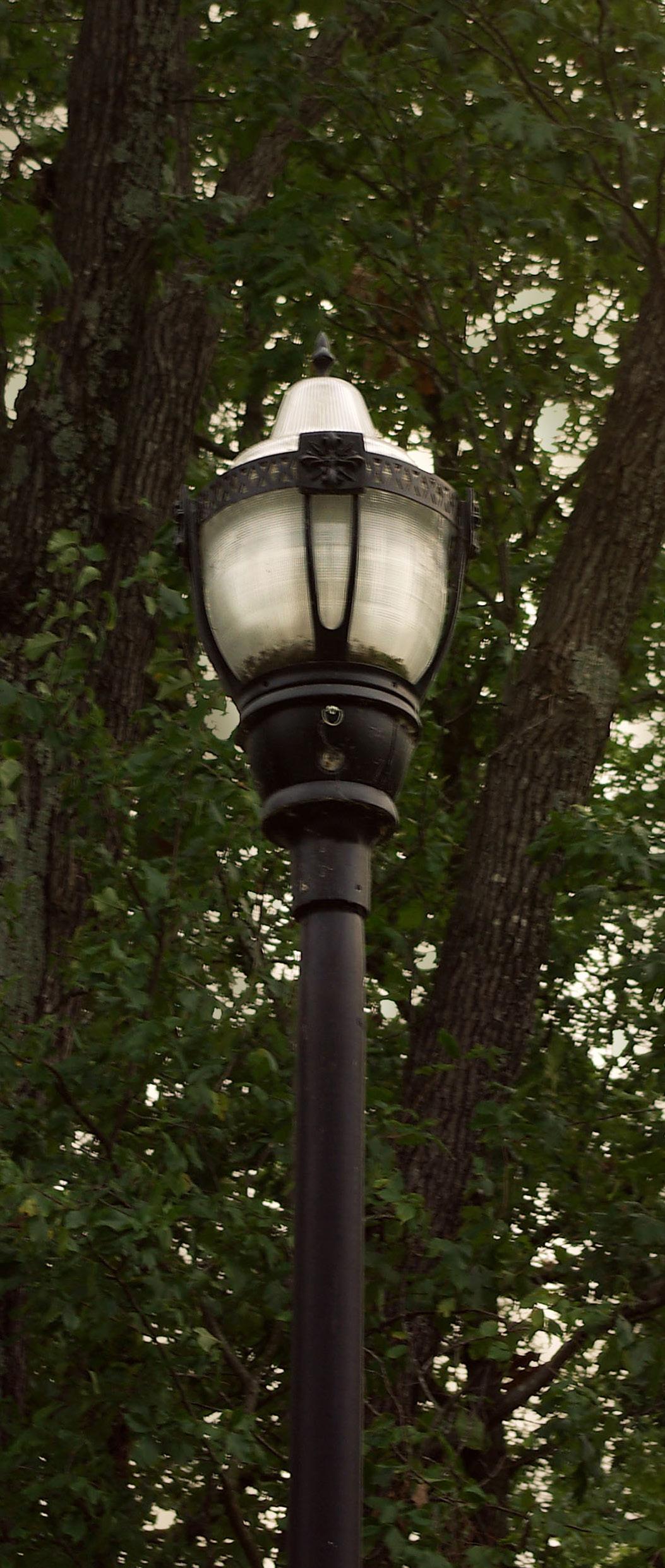
We all remember reading the wonderful The Chronicles of Narnia books, written by C.S Lewis, as children. We recall little Lucy Pevensie finding her way into Narnia through the mysterious, magical wardrobe. As well, we evoke Edmund, Lucy, and their cousin Eustace being sucked into Narnia through the picture frame on the wall at the home of one of their relatives. C.S. Lewis introduces so many different facets of magic to us through these books. The magic can be mysterious, wonderful, and even allegorical.
Many times we find the magic in Narnia to be quite mysterious. In The Lion, the Witch, and the Wardrobe, Lucy finds Narnia through a wardrobe in a spare room in the house of Professor Digory Kirk. Later, when she tries to show Narnia to her elder siblings, the magical wardrobe turned out to be an ordinary wardrobe to her brothers and sisters. Yet when all of them were hiding in the wardrobe from the frightening housekeeper, Mrs. Macready, they find themselves in the magical land of Narnia. It remains a mystery as to why the wardrobe was magical at one point, and then seemed to be a normal wardrobe at a later point.
Another aspect of mystery is the time. Whenever one goes to Narnia, no matter how many seconds, minutes, hours, or even years they stayed in Narnia, when one came back, no time passed at all in our world. However, in Prince Caspian, when the Pevensies left Narnia and returned within a year, they found that actually many centuries had passed by while they were
by Elizabeth Troup
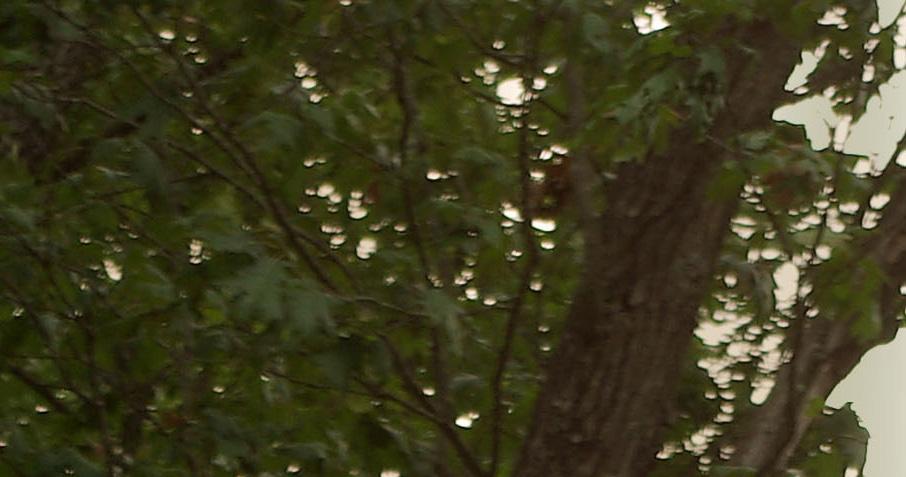
gone. It is extremely mysterious as to why this is, yet it adds an element of interest, excitement, and imagination.
Some of the features of magic that I read in Narnia were rather astounding and memorable to me. For instance, in The Magician’s Nephew, when Aslan the Lion had first created Narnia, anything one planted would grow a tree of that same thing. Digory (who was introduced to us as the old professor in The Lion, the Witch, and the Wardrobe), is a young boy and the main character in The Magician’s Nephew and Polly, his best friend, planted some leftover toffee. The very next day, they woke up to find that the toffee had grown into a toffee tree! This is an amazing aspect that I loved from this book; anything someone planted would grow into a tree of that same thing! This explains why Lucy finds a lamppost in the
middle of the wood in The Lion, the Witch, and the Wardrobe; the evil witch, Jadis, had accidentally taken the top of a lamppost from our world to Narnia, threw it, and it landed in the ground. Another brilliant characteristic of magic was in The Voyage of the Dawn Treader. I always loved the fact that the picture of the sailing ship at sea came to life, flooding the entire room and bringing Lucy, Eustace, and Edmund into Narnia. The toffee tree, the lamppost, and the vivacious picture were all memorable aspects of magic from Narnia.
Non-Christians may not realize this, but those who are have probably recognized the allegorical meanings of the magic in Narnia. We recall in The Lion, the Witch, and the Wardrobe, there is the “Deep Magic” of Narnia. Edmund was supposed to die for his sins, but Aslan took his place for him
because of his love for him. Does that sound familiar? It is just like how our Savior Jesus Christ died on the cross for our sins. Another allegorical symbol in that was the weather. It was “always winter and never Christmas”; there was a perpetual winter in Narnia, that is until Aslan came. Flowers started blooming, birds singing, and spring was coming back at last! Our world was in darkness, and Jesus brought light to our world, just as Aslan brought spring to Narnia. This may not occur to the average individual who reads it, but it most likely does to a Christian reader. The amazing C.S. Lewis has shown to us all sorts of magic in The Chronicles of Narnia. There are so many elements of mystery, allegory, excitement, and wonder. To me, it often sparks my imagination. How about yours?

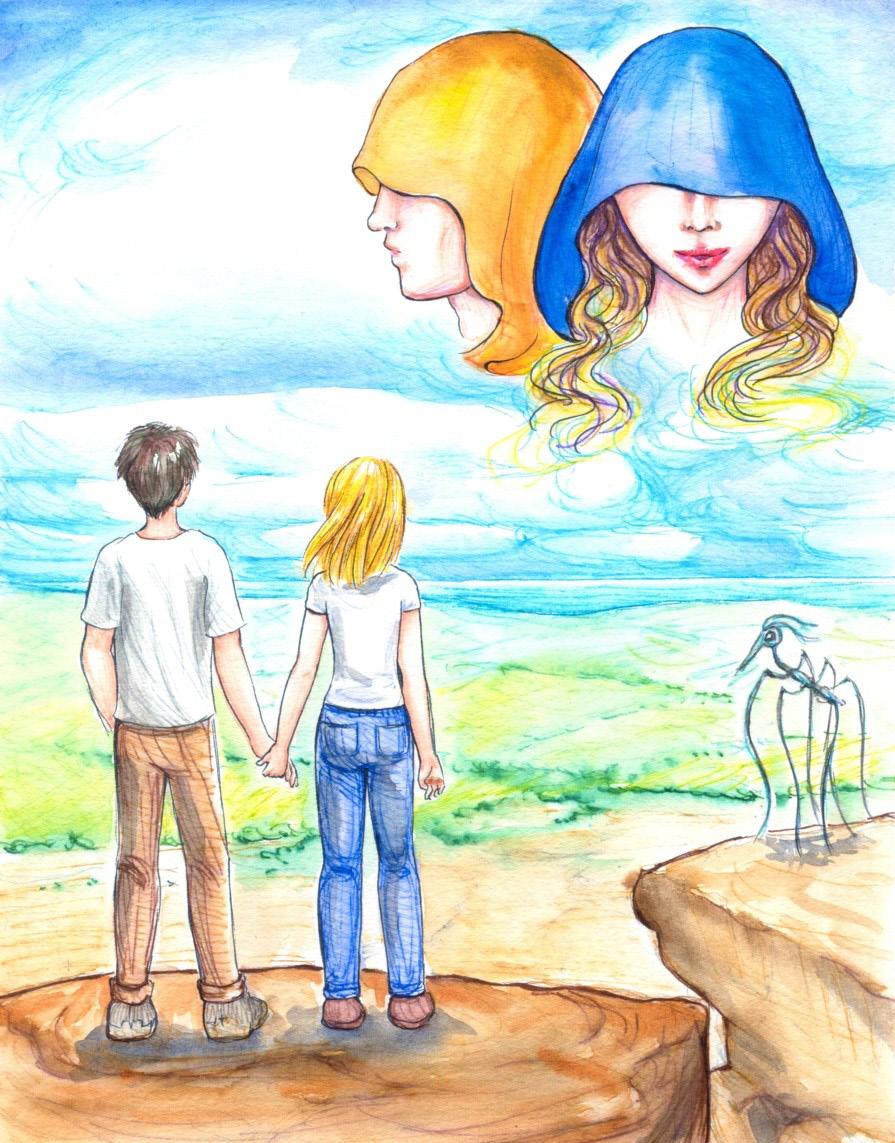
Seaward
In my favorite dictionary (The American Heritage Dictionary), definition 4.a of the word ‘fantasy’ reads: “Literary or dramatic fiction characterized by highly fanciful or supernatural elements.” This definition easily applies to the many books sorted into the fantasy genre. When trying to choose a fantasy book to review for this issue, I was stumped. Fantasy is my favorite type of story; how was I to choose? After prayers and deliberation, I have chosen to review one of the dearest books to my heart: Seaward. Seaward, by Susan Cooper, takes the supernatural side of fantasy, covering a serious topic: what does the life journey mean? There are enough fanciful elements to make it fun, but the deeper meaning of the book is what makes it so endearing. Seaward stars Westerly (West) and Calliope (Cally). They are a pair of teenagers from two entirely different countries on Earth. They speak different languages. Their cultures are not even remotely similar. They are not aware of this, however. Tragedy throws each of them out of our planet into an alternate universe, where each knows only one thing for certain: they must reach the sea. Their navigation of the strange, mythologysteeped world helps them to sort

out themselves, and each other. Most of all, they learn what life and death and the life journey are all about, and how they are related.
My edition of Seaward is only 167 pages long, and six inches tall. But its ittybittiness means that the content is so much more potent; it is boiled down to the core of what Susan Cooper is trying to communicate. Life and death can both be gifts. Personal worldview impacts our opinions on both. The themes of Life and Death are personified in Seaward, and West and Cally learn to know both of them, both sides of them, for we learn in Seaward that Life and Death are bilateral. Preferably, a person will acquire the skill to see both sides during the life journey. The issue of living and dying is beautifully addressed; though the philosophy of it is essentially fantastical, Susan Cooper strikes a chord of Truth on the topic.
The second key topic so elegantly covered in Seaward is the life journey itself. Cally and West’s journey mirrors clearly the journey each of us makes in our own lives. They begin to make discoveries right off the bat, as we all do in this life. They discover their mission. They discover what their personal issues are. They discover what to do
about it. They discover what companionship means. They discover love, both in the other person and in the many helpers they meet along the way. But ultimately, they are discovering that one must live in order to die, and to live well, one must love. Death is so much better when one lives well. In that way, West and Cally learn what it means to be human, what it means to come full circle in this life and out of it. Peth, one of the “advisors” the adventurers meet on their way, sums up a lesson everybody needs to hear: “Whatever happens, believe the journey is worth taking, and then you will reach its end.” Seaward is a relatively unknown book, but it is a gem worth searching out and treasuring. The characters are believable, relatable, yet original. The plot is exciting and fulfilling. The language reads almost like poetry in some parts, pleasing the eye and mind. Truth permeates each page. Every aspect of Seaward exudes a sacred humanity every reader will benefit from. Susan Cooper, known for her Dark is Rising sequence, is showcasing fantasy at its best, combining the elements we all know and love in a story with striking Truth and Beauty to communicate lessons all people need to hear.
fantasy and Magic

antasy and magic. Magic and fantasy. Over the past century those two words have become almost synonymous. Can you imagine Narnia without the Deep Magic inscribed on the stone table? Or Middle Earth without an enchanted ring? They have so entwined themselves that it is nearly impossible to distinguish one from the other. Where would Eragon be without his spellcasters to back him up? Can you part Rumplestiltskin from his powers of magic and trickery? f
However, this can present a problem for some people. I know some are very anti-magic for personal reasons, and it can be extremely hard to find a good fantasy story without some kinds of spells, wizards, or enchanted objects. Really, the only ‘fantasy’ story without magic of some kind that I can think of is Bryan Sanderson’s “Mistborn: The Final Empire,” in which powers are enhanced through the burning of various metals. But what is magic? I believe that it is not so much a matter of green, glowing lights and bubbling cauldrons as it is a word to describe the fantastic and mystifying. We tend to ‘compartmentalize,’ muddling talking teacups with scrying pools, spinning wheels with stone tables,
faeries with sorcerers; when the truth is, that magic is not a thing.
Magic is the embodiment of many things; things without names. Things alive in the imagination; beliefs, symbols, heroes, monsters, and all the other inhabitants of the realms between, in which the best and worst of human nature sinks to the lowest depths or rises to towering heights.
I knew a girl once whose preacher was horrified when she mentioned that they had gone to see the Lord of the Rings, was horrified. He was under the delusion that the Lord of the Rings was demonic – I mean, just look at that poster! It’s someone with pointy ears holding a ring!
I’m not poking fun at that man; I’m simply trying to point out that we are all under delusions of some kind. We assume this is bad, we assume this is good – but why do we assume this? Are we laboring under false pretensions?
Reality has its limits. We will not be sent an envelope with an initiation to Hogwarts, we will not walk through a wardrobe into a winter forest, and we will not spend most of our time around talking tea sets.
We have come from God, and inevitably the myths woven by us, though they contain error, will also reflect a splintered fragment of the true light, the eternal truth that is with God. -J.R.R. Tolkien

When we wake up in the morning, we make the bed, have our coffee, and begin school, chores, and everyday duties; probably wishing a fairy godmother (or father, as the case may be) would appear, grant our every wish, and send us off into a happily ever after.
The truth is that we don’t all get happily ever afters; not in this life. I’m not being pessimistic – I’m a firm believer in happy endings, anyone can tell you – but life has a way of throwing cold reality on the fire of your dreams; and sometimes, we have to wait for the Eternal happily ever after.
That is the true embodiment of magic. That glimpse into the realm of the eternal; where we never die, fantastical things happen, and we can be forever in the presence of our Creator. Can you imagine a more glorious ending?
For now, we are only human, and there is only so much we can do to reach others with hope, with dreams, with a vision for the ultimate end. Because, as Chuck Palahniuk once said,
By Mirriam Neal
“The unreal is more powerful than the real. Because nothing is as perfect as you can imagine it. Because it is only intangible ideas, concepts, beliefs, fantasies that last. Stone crumbles. Wood rots. People, well, they die. But things as fragile as a thought, a dream, a legend, they can go on and on. If you can change the way people think, the way they see themselves, the way they see the world, you can change the way people live their lives. That’s the only lasting thing you can create.”
If magic touches one soul for the better, if it gives them hope and a dream amid their daily lives, if it gives them a glimpse of the light to come, then I have done my job well.
Yes, I believe that magic is important.
Because the soul is the most important thing of all.
An Old English Fairytale in Verse . by Courtney McCullough . illustrated by Mary Sullivan


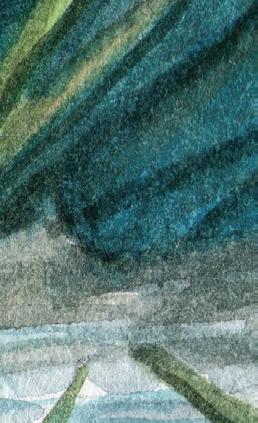


Once there lived a very rich man Who three daughters did have He thought to ask them one fine day How each did love him so To see how fond each daughter was He questioned them thorough “How much do you love me? Daughter, dear, how much?” The first replied, “Why,” says she “I love thee as I love my life.” And her father was well content. The second also did reply “I love thee, father, better than All the world combined.” And with her also he was pleased. But the third daughter when asked Answered, “Father, as fresh meat Loves salt do I love thee.” And at these words her father was Angered to such a degree He sent her from the house and said “Never again let me Your face to see!” The door was shut behind her Long she wandered through the land Til coming to a fen she wove A cape and hood of rushes And donning them she covered Her rich and costly clothes And coming to a great house She knocked and asked them there “A maid need you? Or someone to Do lowly work ‘round here? I ask no wage And work will do Of any type seems fit to you.” And the servants there They let her stay To wash the pots and scrape saucepans. So she did the dirty work That no one else wanted to do And since she gave no name at all Her they all agreed to call Cap o’ Rushes
For the cape she always wore. Now presently a dance was held In a place not far away And the servants were permitted To go and to look on At all the grand people who’d be there. All the other maids went gladly But Cap o’ Rushes said that she was tired And stayed behind. When the others had gone The girl threw off her rushy cape And clean and shining from head to toe Wearing her fine silken clothes She went in secret to the dance And she was the fairest maid there. The young son of her master Just happened to be there And when he looked upon her He thought he’d never seen A maid so lovely or so fair. He fell in love directly Though he did not know her name And danced with her the whole night through. But before the dancing ended Cap o’ Rushes slipped away And sped back to the grand house To pretend she was asleep Before the others should arrive. In the morning they did tell her Excitement in their eyes Of the lovely lady, who Had stolen the young master’s heart Cap o’ Rushes only smiled and said “I wish I had been there.” The night after there was Another dance, and as before, Cap o’ Rushes went in secret And all the servants told her tales Of how the maid had come again And how their master’s son Could not drag his eyes away And danced all night with the pretty maid.

A third dance there was On the very next night The master’s son was rarely glad To see the maid again And when she would not tell her name Nor where she came from he Gave her a ring and told her that He’d surely die if her again He did not some time see. And once more She went home before The dance was done And the maids were sure To tell her How the lady had come again Who’d captured the young man’s heart And they said what shame it was That no more dances there Were to be had So surely Cap o’ Rushes Would never see the lady now. Now the master’s son he tried Every way he knew To find the pretty maid But nowhere could be found The girl he’d spoken to. He soon fell ill And took to bed Because of his love for her And his despair now she was gone. “Make some gruel for the young master,” The others told the cook
“For he’s dying for love of the lady.” The cook took out a pot And began to make the gruel But Cap o’ Rushes, seeing her Asked if she instead could do the job And the cook reluctantly agreed. When the gruel was finished Cap o’ Rushes plopped in the golden ring Given her by the master’s son And cook took it to him. When the young man had drunk All the thin gruel up To his surprise he saw the ring In the bottom of his bowl And ordered he the one who’d made The gruel to come to him. Cap o’ Rushes came And the young master said to her “Did you make my gruel?” To which she said, “I did.” “Where did you get this ring?” He asked. “From him that gave it me.” And then she pulled from off her The cape of rushes and He saw she was the lady From all three the dances. He speedily recovered And the marriage all was planned The girl’s father was invited Though she didn’t tell her name. For the wedding feast
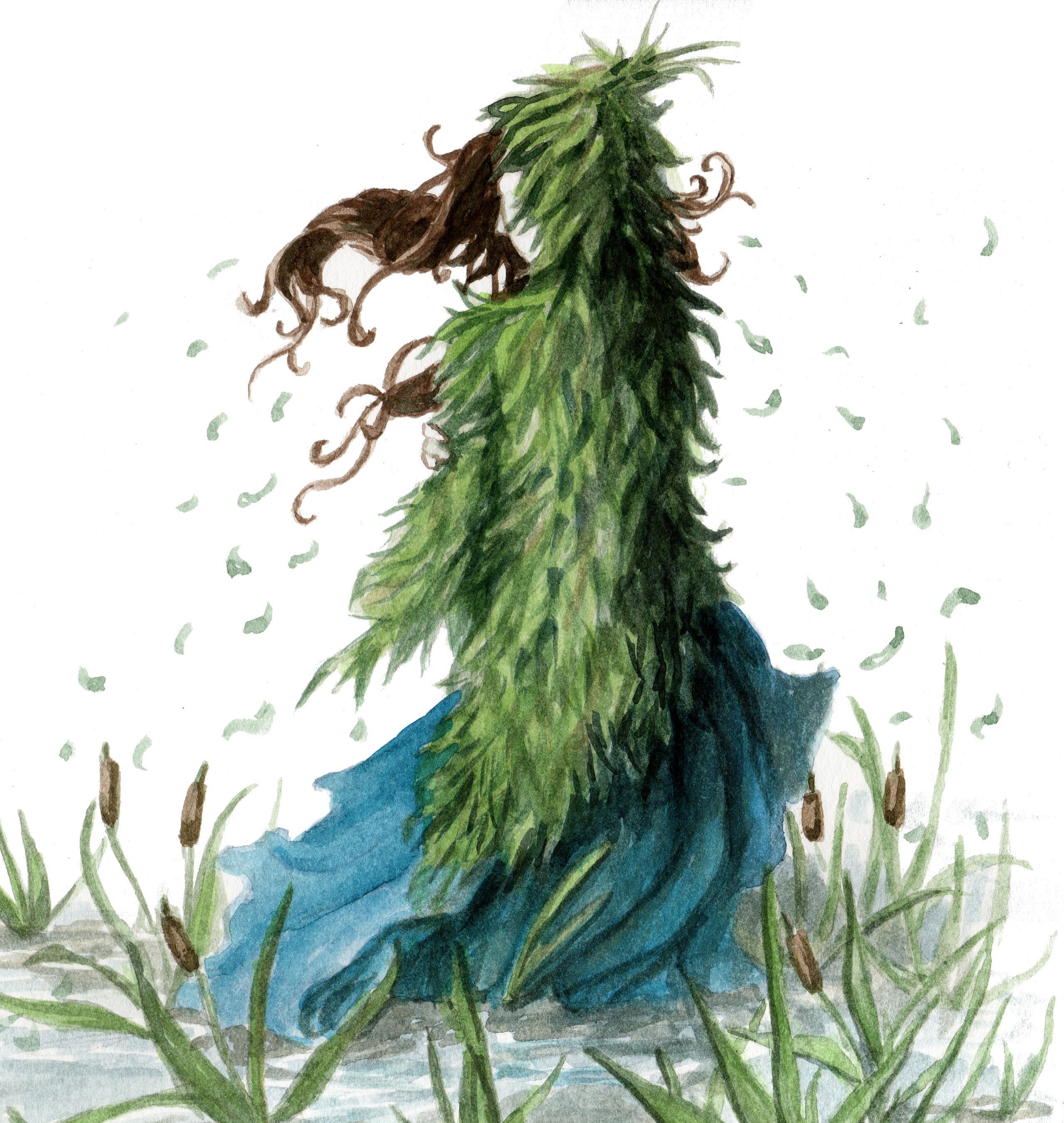
The girl said to the cook “I want you to dress each dish Without a mite of salt.” The cook, though very dubious, Did as she had said. Their wedding-day did come And the girl’s father was there When the celebration started He tasted of the dishes And then burst into tears “What’a the matter sir?”
The master’s son said to him. And he cried out, “I had a daughter And asked her how much she loved me She said ‘as fresh meat loves salt.’ And I thought she didn’t love me Cause of this And turned her from my door. “Now I see,” said he,
“That she loved me best of all And she may be dead for ought I know.” Then Cap o’ Rushes Came up to him and said, “No, she’s right here Father dear.” And put her arms around him And so they all Were happy ever after.


The largest fantasy magic debate concerns J.K. Rowling’s best-selling series, the Harry Potter books. The boy wizard’s name is familiar in most families of Western culture. The Harry Potter phenomenon spread to the silver screen, clothing merchandise, games, and toys. Those that have not been fully exposed to this major literary occurrence ask themselves, “Should I read, or let my children read, Harry Potter? Why all the heated discussions and angry opinions? What is this all about?” There are a number of good reasons people give for Harry Potter’s toxic capabilities. Yet, in the hands of a mature reader, Harry Potter can be a wonderfully fun adventure, and beneficial to the heart and soul. The books are inarguably well-written, and have a complexity envied by writers world-round. But the questions remain. Hopefully, the questioning public can make an informed
decision whether the book is right for them or their family.
Certainly, Harry Potter can be very dangerous. Witchcraft, as it is one of the main pillars of the book, is the biggest apprehension voiced about the series. Most Christians agree that any human manipulation of nature this side of the book’s jacket is Satanic. Why should this belief differ in a children’s novel? Should children be exposed to the idea of the occult at all? Reading about supposed ‘good magic’ might tempt a child into thinking that some real-world magic is okay, and get them mixed up in wicked things. This is a legitimate concern for some parents. The second biggest problem people have with the Harry Potter series is the omnipresent theme of Machiavellianism. The main characters do whatever they deem necessary to get their task accomplished. In the beginning of the first book, Harry breaks the rules and rides his broomstick without permission. Instead of being expelled, or even getting detention, he is rewarded by becoming Seeker of the Gryffindor Quidditch team. This sets the tone for the series, in which the ‘good guys’ continually break rules of the school and of the morality code to defeat the ultimate evil, Voldemort and his cronies. Sins remain sins, even if they benefit the ‘greater good’. Impressionable children could be immensely confused by their heroes’ actions and perhaps adopt their attitude of using the end to justify the means. Though witchcraft and blatant Machiavellianism are the
two biggest factors of concern, there are certainly many others. Some claim Harry Potter is an advocate for the Culture of Death in the characters’ treatment of the baby Mandrakes and the gruesome description of Voldemort’s final minutes. Euthanasia is given an okay in the way Dumbledore is killed. Certain content in the later books can be slightly too ‘grown up’ for younger readers, or crass. There is the Marauder’s Map, forcing those who use it to ‘solemnly swear I am up to no good’. There is plenty of alarming content; undoubtedly, the Harry Potter books hold the power to lead readers off the right path. Despite the potentially hazardous content, the Harry Potter book series has a number of wonderful, even commendable qualities. Most Christian readers agree that the best part of the series is the fact that goodness always overcomes evil, mirroring the ongoing heavenly battle. Parents see this as an encouraging element of any fictitious work. Although their methods are occasionally questionable, Harry and his friends have admirable goals and ideals which they adeptly apply in a myriad of undesirable situations, thwarting the cronies of Voldemort. This laudable theme is accompanied by the themes of resurrection and redemption. The penultimate climaxes of the entire series are increasingly dark, only to be outshone by the major resurrection of Book Seven. Characters such as Dudley and the Malfoys are given a second chance. This is a lovely way to introduce children to
God’s love and mercy, as well as a satisfying element to the story. The virtue of loyalty also plays a large role in the series, both steadfast faithfulness to family and friends, but also fidelity to respectable principles and deserving authorities. The Weasley’s exemplify what regular family life should be like. Dumbledore gives plenty of wise and amusing tidbits in the fashion of Ben Sira in the Bible. As the saying goes, ‘the one who seeks, finds.’ Those who seek for the light of Truth in J.K. Rowling’s famous (or infamous) book series will find it concealed around every corner, or in some cases, under every cauldron lid. There are some Christians who believe that Harry Potter is a direct Christian allegory where every minute detail has meaning. That seems a little extreme, but those scholars have a point. The Holy Spirit actively works through art to bring messages to all people on this earth. Harry Potter can be perilous, but it can also be used to enlighten readers and spread Truth, too. One thing people on both sides of the Harry Potter controversy agree on is that the books are fun and imaginative and exciting. This element alone can be beneficial to young readers. J.K. Rowling’s outstanding ability as an

author is never disputed. All the whimsical situations Ron, Harry, and Hermione encounter thrill readers to the core, pushing them to the edge of their seats with anticipation. Creating a beautifully complex world, Ms. Rowling grants readers’ minds a virtual field day. The intricate, believable world of Hogwarts allows children and adults alike to escape from their lives for a short while and get involved with three-dimensional characters and storylines. Most fantasy scholars will agree that any well written fantasy is a direct parallel of real life. Harry Potter is such a case. Learning to navigate the complicated plots and debatable motives of the series will prepare readers to do the same in their own lives. This is a gem not offered by many books today. The adventuresome air of Harry Potter’s world seeps into the bones of all its readers, readying them to accept the High Adventure God has laid out for them later. Of course, the looming question is still, “Should I read, or allow my children or younger siblings or godchildren to read, Harry Potter?” That ultimate decision is solely dependent upon the individual. If a reader is mature enough to read the books without
being led astray, he or she is probably mature enough to also absorb the
goodness that cataracts through it. When asked why she allowed her children to read Harry Potter, Sara Beatty, a homeschooling mother of nine children, replied, “Frankly, I thought it was entertaining, a good story.” She specifically pointed out how she appreciates, at the end of the day, how evil never wins. She does make her children wait till they are “the same age as Harry” to read the series, however, due to the more detrimental content. But on the whole, she sees it as an asset to her children’s formation. Amy Michaletz, another homeschooling mom, does not allow any of her five kids to read the book series. She says, “I’ve never actually read the books. But with all the disputes about it, I decided I’d rather my kids just avoid them. There are plenty of other good books out there for them to read.” She does agree that the decision should be based upon one’s individual needs, though. “Parents know their own children, and they can decide what is best.” The same is true for those teens and adults who are contemplating reading Harry Potter. The lasting effect J.K. Rowling’s multi-billion dollar book series depends on the reader. And, the arguing shall continue as long as fantasy tickles the human mind.
Fantasy Music
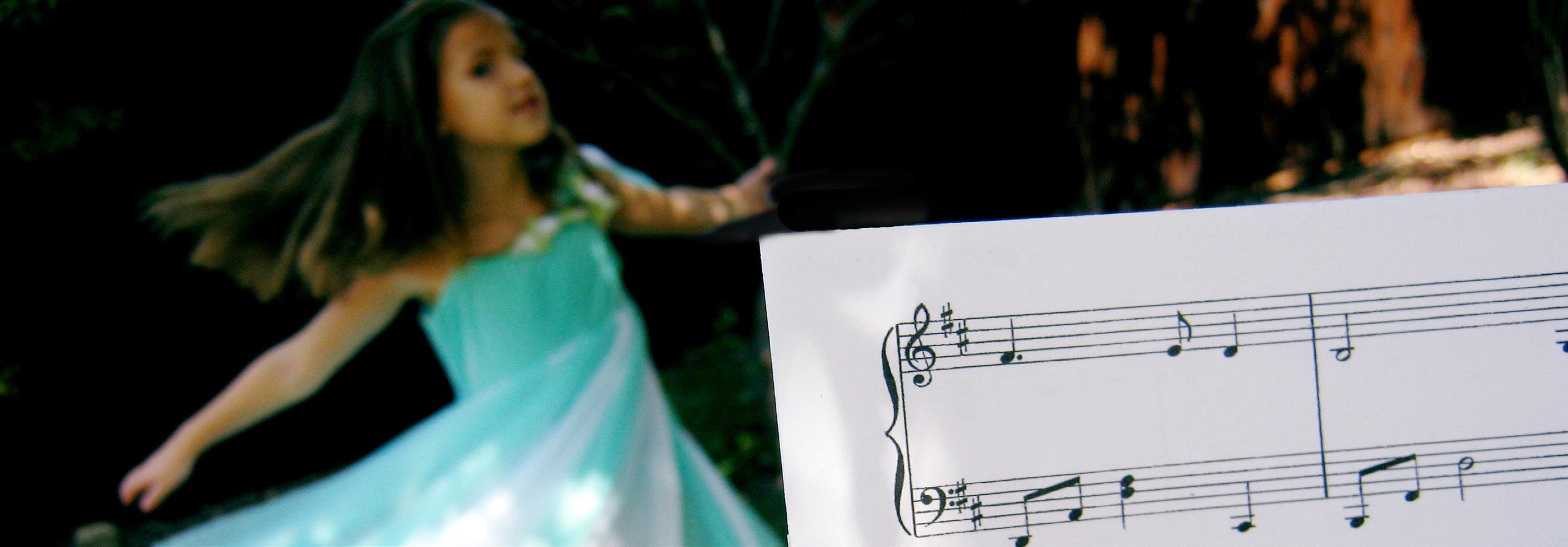
by courtney mccullough
I have a soundtrack for just about everything. Whether I’m outdoors or indoors, crazy or sane, ready to drop dead or bouncing off the walls; you name it, I’ve got back- ground music for it!
So when I feel like having a fantasy party, an impromptu fairy dance, a poetry spree, or just feel like goofing around, there are several awesome pieces of music that come to mind.
Enya - one of the best all-around artists of fantasy or traditional music, and a great go-to for any occasion, Enya’s songs are truly magical sounding. Some of my particular favorites are: ‘Caribbean Blue’, ‘Only Time’, ‘Flora’s Secret’, and ‘Adiemus’.
Mike Rowland - his fairy pieces on the album Fairy Ring really seem to transport me to a land of eternal spring, bright flowers, and mysterious little people. ‘Into the Fairy Ring’ is especially beautiful.
Secret Garden - a little more on the Irish side, this band does a lot of traditional-sounding music that makes me feel like doing a jig or reel on the spot. They also have some slower songs like ‘Nocturne’ that are great for quiet evenings -


and for when you don’t want to see me performing (very poorly) some Irish dancing!
Deuter - this artist is the creator of many breathtakingly beautiful and stupendously long pieces. ‘Lovesong From the Mountains’, ‘Earth Shadow’, and ‘Sea and Silence’, never fail to get my creative juices flowing during a writing session.
Philip Wesley - the album Dark Night of the Soul contains some of his best and most stunning work, in my opinion.
Helen Jane Long - a personal favorite of mine, I actually haven’t heard a song of hers that I don’t like yet. Two of her albums in particular come to mind, Embers and Porcelain. I really can’t narrow it down more than that. I love all her pieces so much!
Those are the main ones I like to listen to. Some other suggestions are: ○ Pushkar - ‘The Shore’ ○ Eva Cassidy - ‘Fields of Gold’ ○ Loreena McKennit - ‘Mummer’s Dance’ ○ Kevin Kern - ‘The Encahanted Garden’ I’m sure there’s a whole world of fantasy music I haven’t even begun to touch on here, but hopefully this will give anyone who’s interested in looking up some amazing music an idea of where to start, and some great pieces to listen to along the way.

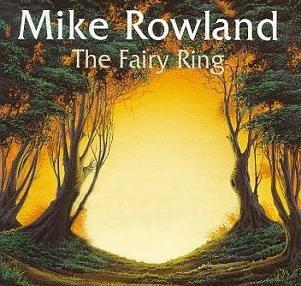

book reviews by Kevin Derby

The Limits of Magic
Fantasy stories often wither or flourish based on how magic works in the created setting. Writers are often forced to offer explanations on how magicians and wizards can tap into magical forces while still leaving some mystery and awe to casting spells. But, as fantastic as magic is and for all the good it can do, some of the best writers show it as unnatural and often destructive. As wonderful as magic can be, some of the best fantasy stories show how it must fade.
While there are many ways of portraying how magic functions, most writers generally stick to a few basic concepts and sometimes, such as in the case of J.K. Rowling in the Harry Potter books, merge them together. Some writers have characters who are born with magical abilities. Other writers have their characters study magic. In some books, higher powers, sometimes gods and goddesses but sometimes other magicians, can give characters magical abilities. Other writers rely on their characters receiving magical items. The “Dragonlance” series of books--the best of them written by Margaret Weis and Tracy Hickman--relies on a few of these
concepts. In “The Soulforged” by Weis, young Raistlin Majere, the sickly and cynical magician at the heart of the series, tells a prominent wizard that he feels that the magic is a part of him, like an extra limb. As Raistlin attends school as a child and teen, he learns more about magic, memorizing spells and components to help him cast. But he also meets the three gods of magic--one for each of the three moons circling around the planet of Krynn--who bestow on him powers. But he also has powers given to
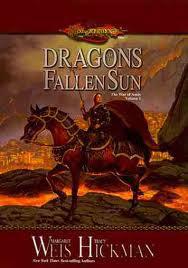
him by an undying wizard--and these powers often serve him and his allies for good or for ill in the “Chronicles” series of book. As Raistlin grows in power in the
various books, he often relies on a magical staff as well. For the most part, Weis and Hickman present a coherent form of magic that draws on a number of sources.

“The Chronicles of Prydain” series by Lloyd Alexander also present magic drawing from numerous sources. While Taran, the assistant pig keeper who is the protagonist of the series, does not have magical abilities, he is surrounded by people and creatures who do. His mentor Dallben is a magician who has lived almost 380 years--but also rarely uses his powers. Princess Eilonwy, one of Taran’s closest friends and eventually his romantic interest, inherited her magical powers while
These our actors, As I foretold you, were all spirits and Are melted into air, into thin air: And, like the baseless fabric of this vision, The cloud-capp'd towers, the gorgeous palaces, The solemn temples, the great globe itself, Ye all which it inherit, shall dissolve

And, like this insubstantial pageant faded, Leave not a rack behind. We are such stuff As dreams are made on, and our little life Is rounded with a sleep. -
-Prospero, Shakespeare, ‘The Tempest”
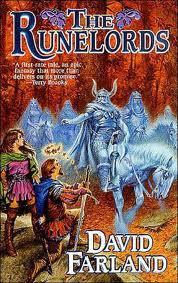
there are several magical items--cauldrons, swords, brooches and harps--in the realm. There are even oracular pigs--one of which sets the stories in motion.
Of course, there are also awful ways that writers can present magic. David Farland’s “Runelord” series is a fairly good example of this. He presents magic as a commodity which can be taken from other people and exploited--but the way he writes about magical units of beauty and intelligence seems to work better for a video game than an actual novel. As Farland often shows the dark side of magic when it’s exploited by villains but his heroes often rely on the same techniques to gain their powers.
Better writers can show the damage inflicted by magic and its consequences on average people
. In the “Legends” series of the “Dragonlance” books, Raistlin grows so enamored of his powers that he attempts to become a god and learns some painful lessons. In “Dragons of Summer Flame,” the gods allow Raistlin to return home without his magic--and at the end of that book, magic is removed from Krynn (sadly, the corporate suits made Weis and Hickman bring it back).
Alexander also does a solid job. In “Taran Wanderer,” readers can see what battles and magic do to average farmers all across Prydain and in “The High King,” the heroes who use magic agree to leave the land for the good of all. Taran is forced to make a choice between living forever in a magical realm or helping the normal world rebuild after all the destruction that magic helped unleash.
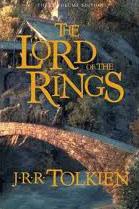
J.R. R. Tolkien had the courage to let magic fade at the end of “The Lord of the Rings” as some of the characters sail away from Middle Earth forever to follow the elves. Much the same thing happened to the magical land of Narnia at the end of C.S.
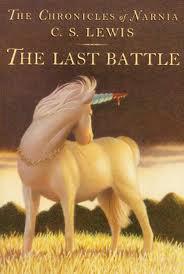
Lewis’ “The Last Battle.” Magic is wondrous and amazing- -but also inhuman and sometimes corrupting. Some of the best fantasy authors have the courage to follow the model of Prospero in Shakespeare’s “The Tempest” and let the magic slip away.
I’ve expressed several times that I did not like Disney’s movie of “Prince Caspian” due to the fact that the producers changed it so much from the original book. However, the other day when my younger siblings were watching it, I was very impressed with one scene that hadn’t meant so much to me before: Peter is sitting inside Aslan’s How, in front of the broken stone table, gazing up at Aslan’s image carved on the stone wall. Lucy enters the scene and sits down beside Peter. b y: M a r i e M a e
Peter: “How can you know?” Lucy: “What do you mean?” Peter: “To have seen him...I just wish he’d give me some sort of proof.” Lucy: “Maybe we’re the ones who need to prove ourselves to him.”
Though several parts of the movie were not done to my liking, this scene, although not in the book, hit the nail on the head for me. I haven’t told a lot of people, but a few, that this summer I was strug- gling in my faith. I was having questions and doubts, even though I really didn’t want to. I admit that some of it was probably my fault, even though I didn’t know it would come to a struggle in faith. But I found myself feeling like I needed proof of
on the Prince Caspian Movie
some things, and it was hard to feel like or know I had any absolute proof of things like the existence of God and of Jesus, Jesus’ love for me, and other things. Thankfully, by God’s grace and assistance, and perseverance in prayer, I’ve come far out of that. Some things still bother me occasionally, but I find I’m able to fight them now much better than I could before. I’m sure the prayers my friends and family said for me helped, and I’m grate- ful for them. That’s why this scene really im- pressed itself on me. Sometimes we have a desire for proof of our Faith. We want God to prove to us that He exists. While we may not ask this of God, sometimes we wish it was more crystal clear to us, and that what we see and hear wouldn’t seem to grapple with what we ac- cept through Faith. It isn’t easy to believe everything in our Faith; but, as Fr. Dave Pivonka said to thousands of teens at a Franciscan Conference last summer, “Anyone who tells you it’s easy to be a Christian is a liar.” It isn’t easy. Is it wonderful, beautiful, and good? Absolutely! But sometimes the best things are those we have to really strive for. Lucy says: “Maybe we’re the ones
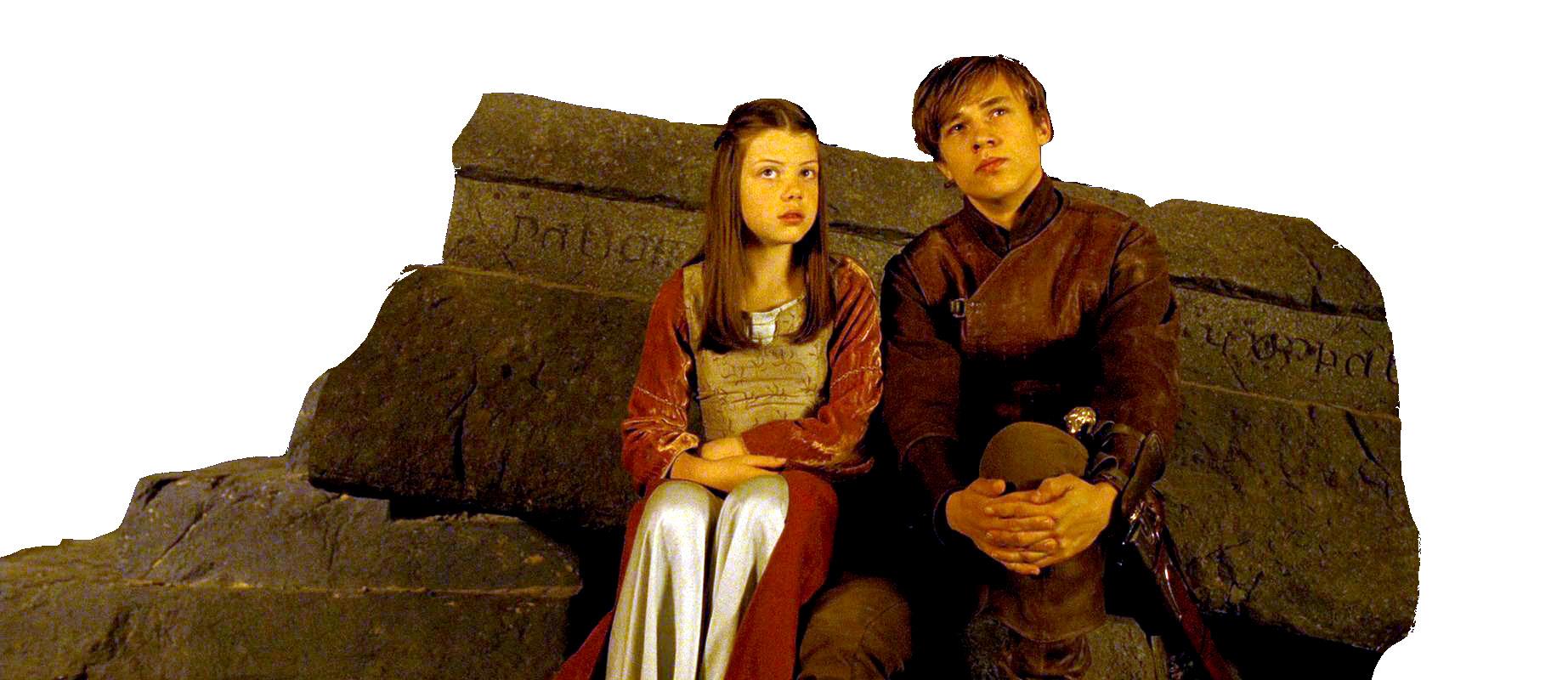
who need to prove ourselves to him (Aslan, or in our case, Jesus).” What does that mean? How am I supposed to prove myself to Jesus? Don’t give up on Him just because you can’t see Him or it seems like He’s not there, or not helping you. That’s how. That’s one thing that I believe helped me through the struggle. I wasn’t sure of every aspect of my Faith all the time, but I was determined not to give up praying because I knew that would be letting the devil win. I wanted to feel that passion for faith and that assurance of what I believed, and when I didn’t, it was hard. Very hard. But I didn’t let it beat me. I didn’t let it make me give up on prayer. That’s proving yourself to Jesus. The times when Jesus sees how faithful we are to Him are the times when even though we may feel nothing, we keep practicing our Faith and fulfilling the duties He asks us to. Never give up on your Faith. There’s always an answer to any of your questions. Always a reason to believe. Sometimes we just don’t know the answers or reasons. And if that’s the case, there are sources we have recourse to that can help us. Richard D. Sandlin, a minister, writer, and speaker, said it best: “It doesn’t matter what
the question is. The answer is always Jesus.”
Witches or Fairies the Literary Difference
B y: M e g a n D o m i n i c k
When we think of witches we think of old ladies dressed in black with big pointy hats with wide brims riding around on broomsticks like the Wicked Witch of the West in The Wizard of Oz or the evil queen in Snow White, and it is like that when we think of fairies like the three fairies in Sleeping Beauty or Tinkerbelle. Though fairies aren’t old, or flying around on broomsticks or evil, like witches most likely are, fairies can be little people that sparkle and can fly. Even though I mentioned that when you think of witches you usually think of the Wicked Witch of the West, the evil Queen in Snow White every now and then there are good witches like Glinda from The Wizard of Oz. In pretty much any dictionary that you pick up as well as the Merriam-Webster Online Dictionary it says that fairies are “a mythical being of folklore and romance usually having diminutive human form and magic powers” and that witches are “one that is credited with usually malignant supernatural powers;
or an ugly old woman.”
Since I have talked about witches and fairies you are probably wondering if wizards are witches or not. Well wizards are pretty much like witches with the exception that wizards can be guys, though they can be girls as well. An example of where both guys and girls are wizards is the Harry Potter books. Not to mention there are bad wizards as well. Here is what the MerriamWebster dictionary had to say about wizards: “a wise man, one skilled in magic, a very clever or skillful person.” The second description of what a wizard is as you probably can see fits in with the Harry Potter books where as the first description fits the wizard Gandalf in The Lord of the Rings books. Now that I have given you what the dictionary says on what witches, wizards and fairies are and what you think of when you hear those words I can tell you a bit on how there is a literary difference between the them. Like the dictionary said in their description of witches,

witches are usually old women who cast spells on people to either try and teach them a lesson, like in the novel Beastly, sometimes for the fun of it or because they have been angered in some way like in Sleeping Beauty, though in the actual fairy-tale it was a fairy instead of a witch. Fairies can be full of mischief or they can be caring, like the fairies in the Disney version of Sleeping Beauty, and like I mentioned before fairies can be little people who like to fly. Then there are wizards, and like I have mentioned all ready there can be good and bad wizards. An example of good and bad wizards can again be found in the Harry Potter books. A second example of good and bad wizards can be seen in The Lord of the Rings with Gandalf being good and Saruman being evil. As you can see even though I didn’t give many examples there is a bit of a literary difference between witches, wizards and fairies.
The Grimm Legacy
by Polly Shulman
reviewed by Brianna Boyce

“‘What’s the Grimm Collection?’ The smiles vanished and they glanced at each other. ‘Don’t worry about that for now,’ said Anjali.
There are many strange things about the New York Circulating Material Repository in Polly Shulman’s The Grimm Legacy but the Grimm Collection is by far the most interesting and magical one.
Elizabeth Rew has been having a hard time adjusting to her new school and new life with her stepsisters and stepmother. Things start to look up after her social studies teacher, Mr. Mauskopf, recommends her for a job at the New York Circulating Material Repository as a page. However, the Repository is no ordinary library. Instead of books it loans out objects from old clothes to silverware. The height of this odd collection of objects is a special collection known as the Grimm Collection.
At first, this Collection seems to be not too much different from any of the library’s other collections. But the objects in the Grimm Collection contain actual magic powers and in exchange for borrowing one of these items the borrower must put down a “deposit-“ a part of one’s self such as their willpower- before they are allowed to take the item out of the Repository. Soon, Elizabeth and her fellow pages are caught up in a wild and dangerous but magical adventure to save the Grimm Collection. Shulman’s novel begs the question of what if. What if real magic existed? How would you use it and to what end? Elizabeth herself seems unsure about using any of the magic for any reason. She quickly realizes how the power some of the items have could be corrupting. However, this is also a novel about a girl finding herself. Elizabeth must
make some hard decisions as the story progresses and is always questioning whether or not they are correct. This is especially shown when she is trying to befriend two of her coworkers. There, Elizabeth must make the decision to either trust the other pages or turn them in for breaking the rules of the Repository.
Elizabeth’s own life seems something out of a fairy tale itself. She has a stepmother and two older stepsisters and while they are not exactly evil they certainly aren’t the ideal family. Right there the story seems to be a modern Cinderella. However, while starting out this way, Shulman has cleverly shifted the novel from the traditional path the story might seem to take. The book itself is not too predictable. In the end, everything seems to come out as one might think, but throughout the story changes are constantly happening that one couldn’t even imagine at the time.
At first glance, The Grimm Collection seems to be a fairy tale that has been told over and over again in so many different ways. However, Shulman takes the story in a whole different direction in a way like no one else could do. The novel constantly asks what is correct or right and though in the end everything seems to come out fine the reader is left wondering whether the choices the characters have made were truly correct or not.
Mio in the Land of Faraway
reviewed by Kevin Derby
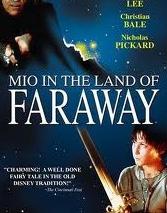
Harry Potter was lucky that he had a train to take him to Hogwarts while Peter, Susan, Edmund and Lucy had to do was enter a wardrobe. Some fantasy characters aren’t as fortunate in how they get to their magical realms as “Mio in the Land of Faraway” demonstrates.
With the success of the “Never Ending Story” in 1984, a host filmmakers decided to make films about modern children whisked away into fantastic settings. “Mio in the Land of Faraway” came out in 1987 and, while the cast is mostly Scandinavian, there are some recognizable actors. Despite the solid cast, “Mio in the Land of Faraway” is a tangled mess of a film that bungles its story and includes some truly bizarre and often mindless plot devices.
The plot seems familiar, perhaps overly familiar. Young Bosse (played by Nicholas Pickard who went on to become a British soap opera star) is in the familiar position of being raised by his cruel aunt and uncle since his father is missing. While he has a good friend, played by a very young Christian Bale, bullies target Bosse and make his life miserable. Bosse comes off as a weak protagonist who does not have much in the way of redeemable qualities and is a passive coward. One day he leaves his house with a vague idea of running away to find his father. Bosse meets a storekeeper who gives him an apple and a letter to mail to the Land of Faraway. The letter (why our “heroic” protagonist feels the need to read someone’s mail is unclear) informs the king of that realm that Bosse will soon be there. When a bewildered Bosse places the letter in the mailbox, the apple turns to gold.
We are now subjected to one of the strangest scenes in movie history. Bosse encounters a giant floating head of an old man who orders the boy to cling to his flowing beard so he can take him to the Land of Faraway. The giant head then starts floating above the city qs Bosse holds on to the beard. To make things even worse, a horrible song kicks in from forgotten 80s band Gemini and the lead singer shrieks lyrics about “the bird of sorrow” and how we are floating over the garden with fear until we hear our father call to us. In the meantime, the floating head rises into outer space and heads (no pun intended) beyond the stars. Instead of dying because there is no oxygen in space, Bosse grins like an idiot and continues to cling to the beard. Pulling your upper lip over the top of your head is less painful than watching this truly horrid scene. The floating head drops Bosse off in the Land of Faraway and drifts off out of the story. In turns out the king of the Land of Faraway is- -surprise!--Bosse’s father. The king reveals to Bosse that his real name is in fact Mio and introduces him to a young boy from Faraway who is also played by Bale and sports the idiotic name Jum-Jum. All seems pleasant in the Land of Faraway but there is a wicked knight named Kato, played by Christopher Lee, who is kidnaping and tormenting children. Of course Mio (the child formerly known as Bosse), with the aid of a magic sword, cloak that turns him invisible and a horse, heads off to put an end to this.
This is a dreadful film. Besides the horrible plot and amateurish special effects, “Mio in the Land of Faraway” has a loathsome message. Fantasy can
inspire or offer a way of looking at the real world--as readers of Rowling, Lewis, Tolkien and other writers can attest . What fantasy stories should not do is encourage readers or viewers to cower from the real world and seek solace in imaginary settings- -which is the message of “Mio in the Land of Faraway.”
While the cast has some big names, they have little to work with here. Even Lee, who is almost always excellent in portraying villains, seems to be going through the motions. Having captured Mio and taken his sword, Kato muses that this is most dangerous weapon he has ever seen--and promptly throws it out the window for no apparent reason. Not exactly something Saruman or Count Dooku would do. Of course, this idiocy comes back to haunt Kato. That’s “Mio in the Land of Faraway” in a nutshell--an incredibly predicatable plot imprisoned within the fantasy genre’s cliches and peopled with weak characters.
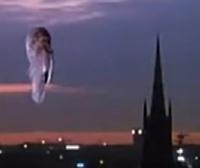
Tolkien and Lewis on Fantasy Magic
By Megan Dominick
“Fantasy is escapist, and that is its glory. If a soldier is imprisoned by the enemy, don’t we consider it his duty to escape?. . .If we value the freedom of mind and soul, if we’re partisans of liberty, then it’s our plain duty to escape, and to take as many people with us as we can!”―J.R.R. Tolkien
“At all ages, if [fantasy and myth] is used well by the author and meets the right reader, it has the same power: to generalize while remaining concrete, to present in palpable form not concepts or even experiences but whole classes of experience, and to throw off irrelevancies. But at its best it can do more; it can give us experiences we have never had and thus, instead of ‘commenting on life,’ can add to it.”―C.S. Lewis In his in-depth analysis of the literary use of magic in the works of J.R.R. Tolkien and C.S. Lewis, Steven D. Greydanus said “the magic of Tolkien and Lewis in its particulars bears little or no outward resemblance to actual occult practices in the real world, instead consisting of obviously imaginary and fantastic phenomena that offer no appreciable risk of direct imitative behavior.”
Later on in the analysis Greydanus says, “Lewis in particular took pains, as I will show, to avoid even the appearance of condoning any sort of magical study or practice in the real world. His fictional worlds have been consciously and deliberately shaped in such a way as to make quite clear that the pursuit of magic, while it might be imagined to be a safe and lawful occupation for someone like Coriakin in the fairy-land world of Narnia, is in fact dangerous and wrong for human beings in and of our world — something attempted by nasty personages like Digory’s Uncle Andrew. Tolkien, too, created his imaginary world in such a way that the imaginative leap from the magic of Middle-earth to real-world occult practices would be difficult if not impossible for readers to make. The whole shape of his worldview as a Catholic Christian and of his imaginative life was antithetical to the “deceits of the enemy”; and the very quality of the magic of his world, as well as of the imaginary situations in which it might be lawfully pursued and exercised, was very much removed from, and opposed 24
to, the forbidden practices of real-world occultists and practitioners of magic, and even from objectionable fantasy magic.”
As you can see from what I have taken from Steven Greydanus’ analysis of the literary use of magic in the works of J.R.R. Tolkien and C.S. Lewis, both authors took great pains to not use any sort of occult magic in their writings. In the quotes by Tolkien and Lewis that I have included you can see, in their own words, what they thought about fantasy and magic. And in the 7 points, from Steven Greydanus’ analysis of the literary use of magic in the works of J.R.R. Tolkien and C.S. Lewis, you can see more of how Tolkien and Lewis thought of fantasy and magic
“The incalculable winds of fantasy and music and poetry, the mere face of a girl, the song of a bird, or the sight of a horizon, are always blowing evil’s whole structure away.”―C.S. Lewis

“The Gospels contain a fairy-story, or a story of a larger kind which embraces all the essence of fairy-stories. They contain many marvels- peculiarly artistic, beautiful and moving: ‘mythical’ in their perfect, self-contained significance; and among the marvels is the greatest and most complete conceivable eucatastrophe. But this story has entered History and the primary world; the desire and aspiration of sub-creation has been raised to the fulfillment of Creation. The Birth of Christ is the eucatastrophe of Man’s history. The Resurrection is the eucatastrophe of the story of the Incarnation. This story begins and ends in joy.” - J.R.R Tolkien
1.
Tolkien and Lewis confine the pursuit of magic as a safe and lawful occupation to wholly imaginary realms, with place-names like Middle-earth and Narnia — worlds that cannot be located either in time or in space with reference to our own world, and which stand outside Judeo-Christian salvation history and divine revelation. Reinforcing the above point, in Tolkien’s and Lewis’s fictional worlds where magic is practiced, the existence of magic is an openly

known reality of which the inhabitants of those worlds are as aware as we are of rocket science — even if most of them might have as little chance of actually encountering magic as most of us would of riding in the space shuttle. Tolkien and Lewis confine the pursuit of magic as a safe and lawful occupation to characters who are numbered among the supporting cast, not the protagonists with whom the reader is primarily to identify. Reinforcing the above point, Tolkien and Lewis include cautionary threads in which exposure to magical forces proves to be a corrupting influence on their protagonists: Frodo is almost consumed by the great Ring; Lucy and Digory succumb to temptation and use magic in ways they shouldn’t. Tolkien and Lewis confine the pursuit of magic as a safe and lawful occupation to characters who are not in fact human beings (for although Gandalf and Coriakin are human in appearance, we are in fact told that they are, respectively, a semiincarnate angelic being and an earthbound star.) Reinforcing the above point, Tolkien and Lewis emphasize the pursuit of magic as the safe and lawful occupation of characters who, in appearance, stature, behavior, and role, embody a certain wizard archetype — white-haired old men with beards and robes and staffs, mysterious, remote, unapproachable, who serve to guide and mentor the heroes. Finally, Tolkien and Lewis devote no narrative space to the process by which their magical specialists acquire their magical prowess. Although study may be assumed as part of the back story, the wizard appears as a finished product with powers in place and the reader is not in the least encouraged to think about or dwell on the process of acquiring prowess in magic.

modern fairy tales novels for teens by Regina Doman


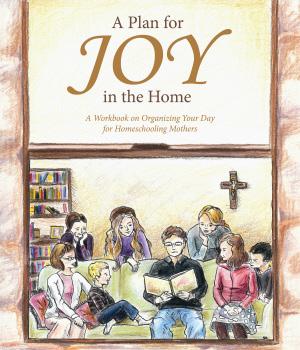
Your ad here!




Because Ink and Fairydust is a free magazine, we are not currently set up to handle paid advertising.
However, we’d love to get the word out about your business or projects!
We love advertisement “swaps!”
brought to you by the staff of Ink and Fairydust
new website Rivershore Books

We’re taking steps towards making Ink and Fairytdust available in print. We’re pleased to announce that we will be partnering with Rivershore Books, a publishing and editing company that special- izes in faith-based literature and is run by our very own Ellianna Mitchell. This will change nothing about Ink and Fairydust, but will allow us to explore options for a print version!
CONTACT US we love to hear from our readers!
To subscribe: inkandfairydust.com/subscribe
For submissions and other contribution inquiries: submissions@inkandfairydust.com
Graphics: graphics@inkandfairydust.com
Prince Charming taking too long? Evil Stepsisters stealing your clothes? Talking Animals following you around?
Fairy Godmother is here to help!
Email your questions to FairyGodmother@inkandfairydust.com Your question could be featured in the next Dear Fairy Godmother!
Special deals:
The entire
Fairy Tale Novel set
for $65!
The three JP2H books for $33.33

In addition to publishing Regina Doman’s Fairy Tale Novels, Chesteron Press is now also publishing the John Paul 2 High series which she helped to create.


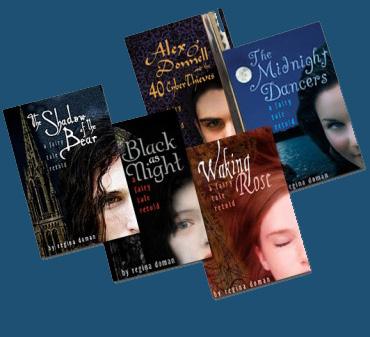
JP2H Book 3: Summer of My Dissent, is now available for purchase!


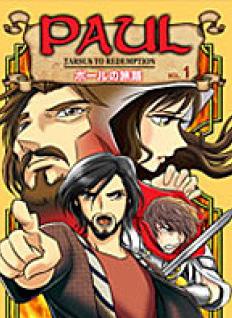
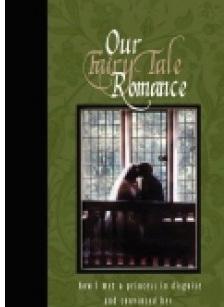
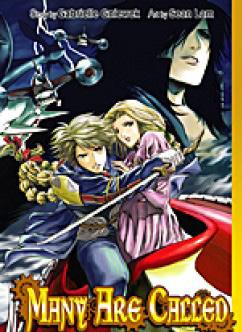
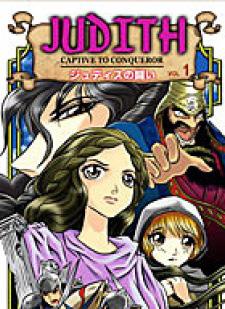

www.chestertonpress.com
There was once a beautiful fairy with smooth, pale skin, named Kalia. She was the fairy queen of the fountain. Her hair was a long, blonde, wavy waterfall falling down her back. The fairy had long, lovely, graceful wings on her back. The wings were transparent, with shiny, colorful sparkles scattered about them. Her lovely voice sounded strong and powerful, yet kind and melodious. She wore a long, gorgeous, flowing white dress. The fabric of the dress was the softest one could imagine, for the material was made of fairy’s silk, but no one knows where the silk comes from, or how the fairies make it. Kalia wore no shoes, just like all fairies, her bare feet were quite comfortable in the warm, magical water of the fairy fountain. Hundreds of fairy servants lived in the fountain with her. The other fairies were quite small, and were only about three inches in height. The tiny fairies were all female, for their husbands and all the boy fairies had jobs elsewhere, but that is a whole other tale altogether. The exquisite, lovely miniature 28

fairies had petite wings, long hair of various colors, and sparkles on their faces. They wore dresses made of fairy silk coming up to the knees. All the fairies spoke in a mysterious fairy language, but by magic were able to speak in any other tongue.
There was a legend that all the people in all the kingdoms knew about fairies, which most people believed to be true. Whenever there was a weary traveler coming home from battles with fierce dragons, rescuing damsels in distress, or some other mission, it has happened that they would come across a fairy fountain, usually within a small, inconspicuous cave. They would hear lovely voices singing from the inside of the cave, and the fairies would heal them of their injuries and fatigue, giving them the strength to get home. All good people believe this legend, but those with a cold heart of stone have no trust, and refuse to accept “any of this nonsense”, but in the back of their miserable minds they know that they are terribly wrong. Once upon a time, there was a brave knight named Sir Charles, moderately handsome, with light brown hair, small blue eyes and a short beard. Sir Charles
and his other knights were on their way home, weary and injured from their dragon battle. The evil dragon had been terrorizing a village, so the knights were called upon to slay the menace. The adventure was successful, but it was quite difficult. They were walking in the mountains, and heard a faint, but gorgeous voice. “Wait!” He exclaimed. “Shh, I hear it!” The other knights rolled their eyes and exchanged glances. “Fairies,” they said sarcastically and chuckled. “Hold on a second!” Sir Theodore abruptly cried. “I do hear something.” The knights, most of them reluctant, followed the song until they came across a small cave. “What fools!” Sir George, an older, almost eternally grouchy knight exclaimed. “There’s probably nothing in there,” he continued to another knight, snickering at the comment. “Let’s go!” Sir Theodore cried out, going after Sir Charles into the cave.
Kalia observed several knights enter her home. She smiled as she saw one brown haired knight get down on one knee before her. “My lady,” he said humbly. “My men and I are weak and injured, and we wish to soak in your spring so that we may have the strength to continue our journey back to our
by Elizabeth Troup
kingdom.
The fairy began to nod her head, but he was not finished yet. “ I have heard many tales of you assisting others, and I just would like to give you a token of my gratitude, in case others have not,” he said as he opened a small, tan colored satchel made of a simple cloth and took a lovely, mystical looking flower from it. This was no ordinary flower, however. The petals were firm and smooth, and of many, beautiful colors. It shone with an amazing radiance, and sparkled like pixie dust. The scent was unlike anything one could imagine, greater than the sweetest smelling rose, or the loveliest of perfume. “This is not much, especially for you, my lady, but this is one of the rarest of flowers that my men and I were blessed enough to find,” he continued.
Kalia took the flower with her thin, delicate fingers and looked at it in wonder, “You know, not many thank me. They give me words of gratitude, but I know in their hearts there is no real appreciation. But you, young man, have a heart full of humility and gratitude. Come, and soak in the fountain, my servants will tend to your injuries.”
“Thank you, my lady,” responded Charles, who was quite
pleased, and kissed her extended hand.
The knights sat at the edge of the soothing spring, soaking their hands and feet in the purifying water. The tiny fairies healed them of their wounds by sprinkling fairy dust on them with their wands.
All of the knights thanked the fairies generously, but as they turned to leave, The Great Fairy called them back.
“ In return for your gratitude, I have something to give you,” she said, motioning to a blonde-haired fairy in a white dress, who brought forth a tiny, but mystical looking instrument that none had ever seen or heard of. “If you are ever in need again, summon me with this, and my fairies will come to your aid.” “Thank you, my lady,” Charles bowed and received the special gift.
As the men traveled home, Charles thought about the present he was given. When would he use it? Would he ever use it?
“Sir Charles?” asked a younger, handsome knight with blonde hair, wrecking his train of thought.
“Yes, Sir Owen?” “I’m sorry for doubting you before, about the fairy.”
Charles smiled, “It’s hard to

believe in something that is hidden, is it not? But you know, when I was a young lad…..” Charles was interrupted by a fierce war cry coming from all around them, and a league of bloodthirsty bandits surrounded them. Charles’s group of men were quite small, only about ten, for his other men had split ways for the journey home. They were outnumbered by at least twenty.
The knights fought the evil bandits, but to no avail, they were the roughest he had ever encountered, and Charles was obviously losing. Several of his men were already wounded, and he did not wish to lose any of them. He had no choice but to blow the instrument Kalia had given him. Suddenly, out of nowhere, fifty fairies appeared. Speaking in an unfamiliar tongue, they waved their wands and zapped the horrid bandits, turning them into diminutive, harmless black ants. All of the soldiers were dumbfounded. They did not really think the fairies would still aid them; after all they did for them before. They thanked the fairies, and they in turn nodded their heads and vanished into nothingness. It is hard to imagine that one, small gesture of gratitude could change one’s life.
29
COMING SOON to Ink and Fairydust...

ELECTIONS history, trivia, and more!


